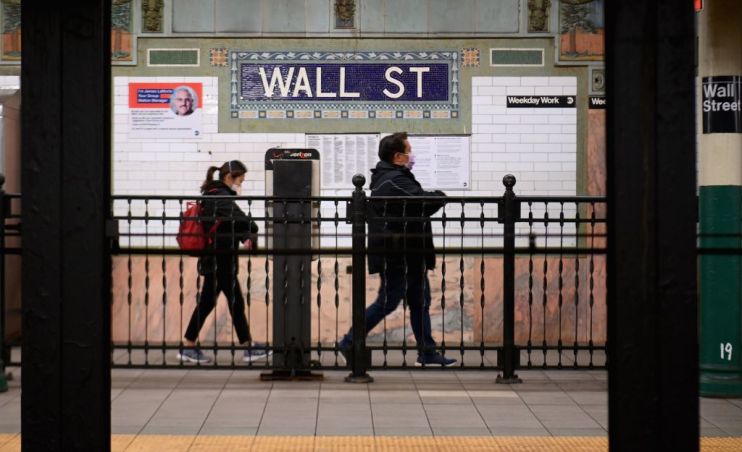US stocks rise as investors find hope after choppy week

US stocks have had a choppy start on the final day of a stormy week as investors hope coronavirus lockdowns will soon be eased but remain deeply uncertainty about the future.
The Dow Jones index was up 0.1 per cent just after the bell. The S&P 500 had climbed 0.1 per cent but the Nasdaq was 0.3 per cent lower.
Sentiment was supported by states planning to ease lockdowns, a rebound in oil prices and a new fiscal stimulus package. But the optimism that drove a sharp rebound in stocks in recent weeks has faded.
As coronavirus appears to peak in many parts of the US, states such as Ohio, Tennessee and Montana are planning to reopen parts of their economies.
The US government and Federal Reserve has also showed that it has investors’ backs, pumping a record amount of money into the economy via stimulus packages.
A further $500bn (£400bn) of stimulus was signed off yesterday by the House of Representatives. It is now with President Donald Trump to sign.
European markets were trading lower this afternoon, however. They were dragged down by a report that a drug that was touted as a possible coronavirus treatment had failed in its first clinical trial.
The UK’s FTSE 100 was down 0.9 per cent while Germany’s Dax had fallen one per cent. The pan-European Stoxx 600 had slipped 0.3 per cent.
US stock had reversed course yesterday evening when the report – that pharmaceutical firm Gilead’s experimental antiviral drug had failed to help severely ill coronavirus patients in China – emerged.
Today, however, US stocks were also supported by a slight rebound in oil prices. The oil market has cast a pall over investors this week after the benchmark US price, WTI crude, fell into negative territory for the first time ever on Monday.
The June contract for WTI had today risen 2.6 per cent to $21.90 per barrel.
“We have now entered the inflection phase where the rebalancing has started,” said Goldman Sachs analyst Jeffrey Currie.
“But this period could take four to eight weeks to resolve before we can comfortably argue a bottom has been carved out.”